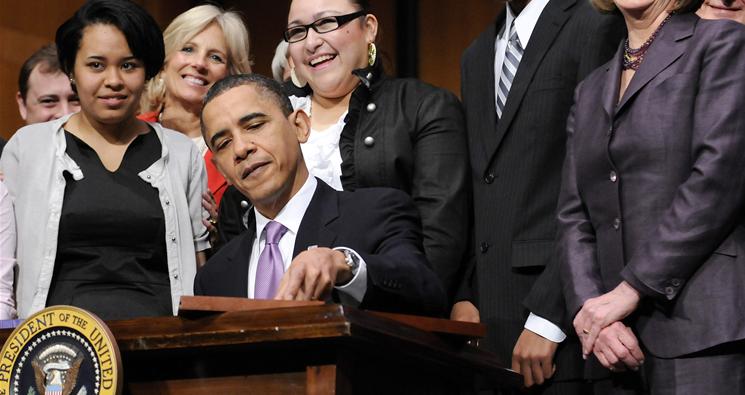Reactions of Liberals to the ObamaCare Oral Arguments
Heading into the oral arguments in the ObamaCare case last week, it seemed that Liberals thought the case was in the bag. Their attitude was, as Nancy Pelosi once stated, when brushing off a question about whether the individual mandate is constitutional, “Are you serious? Are you serious?”
Things apparently did not turn out as Liberals had expected at the oral arguments.
Almost immediately after the oral arguments had concluded, Liberals began expressing their shock that the Supreme Court might actually invalidate all or part of ObamaCare. It was as if the thought had never crossed their minds.
The initial recipient of the Liberal outrage was Solicitor General Donald Verrilli. Rather than acknowledge that maybe, just maybe, their positions in the case lack legal merit, Liberals decided to make the Solicitor General the scapegoat. They claimed he “choked” during the oral argument and “blew it” and that “his defense of Obamacare . . . may go down as one of the most spectacular flameouts in the history of the court.”
After scapegoating the Solicitor General, Liberals then engaged in damage control, which included distancing themselves from ObamaCare as quickly as one moves away from someone with body odor. Remarkably, Liberals began calling ObamaCare a “bi-partisan bill”. Liberals made this claim despite the fact that ObamaCare was passed without one “yes” vote by a Republican in the House or in the Senate. Only Democrats voted in favor of the bill. A Democrat President signed it into law. ObamaCare is theirs and theirs alone.
Next, Liberals began waging a publicity campaign, in both the “old” and “new” media, in a post-oral argument attempt to convince the Justices not to invalidate ObamaCare, even if the Constitution supports such a decision.
Liberals started advancing various themes, including that the Justices should not strike down all or part of ObamaCare because to do so would require a close vote. If the Justices strike down the law by a close vote, the theme continued, then the public would view the Court as “political” and the Court’s reputation would be diminished for decades. (For Liberals, these same concerns do not apply if the Justices uphold ObamaCare by a close vote; in that circumstance, they will call the Justices “courageous.”)
Here, apparently, is how the scenario of their publicity campaign is supposed to play out:
(It is mid-afternoon at the Supreme Court. The Justices have already held their post-oral argument conference and have cast their preliminary votes in the ObamaCare case. Justice Scalia is working at his desk. A beautiful Italian opera is playing softly in the background. His telephone rings. He answers it.)
“Hello?”
“Nino. It’s me, Ruth.”
“Hey, Ruth. What’s up?”
“Have you seen/heard the commentaries in/on [fill in whatever Liberal newspaper, blog, website, radio show, or television show you want]?”
“No.”
“Well, they are saying we better uphold the Affordable Care Act or the public will think we are political and will not respect us anymore.”
“Oh no! Let’s get the others on the line!”
(Minutes later, the nine Justices are on a conference call. Justice Ginsburg repeats what she just told Justice Scalia. Immediately, those Justices, who initially had voted to invalidate ObamaCare, change their minds and decide to uphold it.)
Unfortunately for Liberals, despite the publicity campaign they are now waging, Justices are not swayed by public opinion, as Justice Thomas recently explained.
One of the main reasons is that Justices have lifetime appointments. Unless they commit an impeachable offense, they will remain a Justice until they retire or die. They do not have to worry about being re-elected. They are not concerned that their salary will be based on how they rule in a case. They do not have to jockey for position so they can get a better judge job—they already sit on the highest court in the land. In short, their lifetime appointments insulate them from outside pressure. They rule on cases based on their interpretations of the Constitution, even if the public disagrees with those interpretations.
By now, the Justices have rendered their preliminary votes in the case. These votes are based on the arguments in the briefs the parties and the “friends-of-the-court” have filed, by the oral argument presentations, by the Justices’ discussions, and, most importantly, by the Constitution.
Granted, those preliminary votes may change. But, any changes will not be caused by the views of an outside commentator. At this point, any vote changes will occur based on the strength of the Constitutional interpretations laid out in the various opinions the Justices will be circulating among themselves.
That is how the process works—just as it should. We will know the outcome of that process by June.
